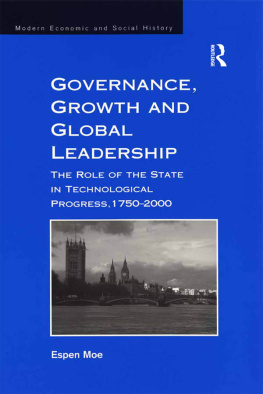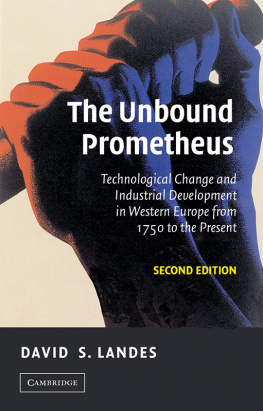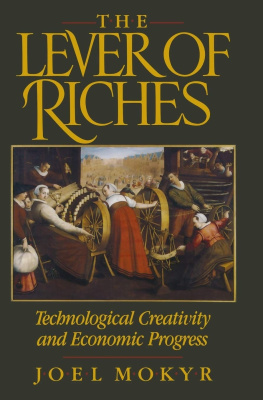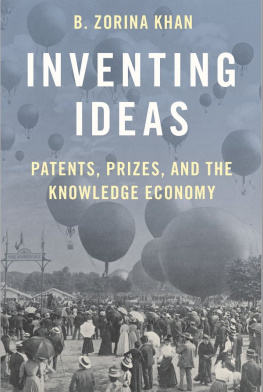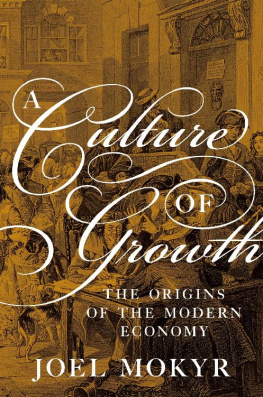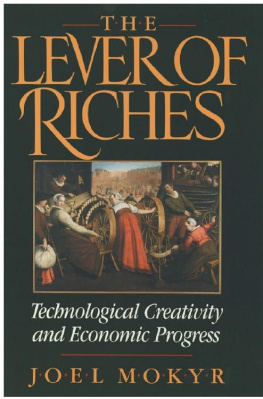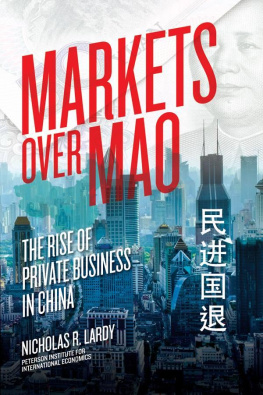GOVERNANCE, GROWTH AND GLOBAL LEADERSHIP
Modern Economic and Social History Series
General Editor: Derek H. Aldcroft
Titles in this series include:
Exchange Rates and Economic Policy in the 20th Century
Ross E. Catterall and Derek H. Aldcroft
Reconstruction and Cold War in Germany:
The Kreditanstalt fr Wiederaufbau (19481961)
Armin Grnbacher
Demons of Domesticity:
Women and the English Gas Industry, 18891939
Anne Clendinning
The Hidden Cost of Economic Development:
The Biological Standard of Living in Antebellum Pennsylvania
Timothy Cuff
Industrial Reorganization and Government Policy in Interwar Britain
Julian Greaves
Europes Third World:
The European Periphery in the Interwar Years
Derek H. Aldcroft
The Popularization of Malthus in Early Nineteenth-Century England:
Martineau, Cobbett and the Pauper Press
James P. Huzel
Taste, Trade and Technology:
The Development of the International Meat Industry since 1840
Richard Perren
Alfred Herbert Ltd and the British Machine Tool Industry, 18871983
Roger Lloyd-Jones and M. J. Lewis
Rethinking Nineteenth-Century Liberalism:
Richard Cobden Bicentenary Essays
Edited by Anthony Howe and Simon Morgan
Governance, Growth and Global Leadership
The Role of the State in Technological Progress, 17502000
ESPEN MOE
Norwegian University of Science and Technology, Norway
First published 2007 by Ashgate Publishing
Published 2016 by Routledge
2 Park Square, Milton Park, Abingdon, Oxon OX14 4RN
711 Third Avenue, New York, NY 10017, USA
Routledge is an imprint of the Taylor & Francis Group, an informa business
Copyright Espen Moe 2007
Espen Moe has asserted his moral right under the Copyright, Designs and Patents Act, 1988, to be identified as the author of this work.
All rights reserved. No part of this book may be reprinted or reproduced or utilised in any form or by any electronic, mechanical, or other means, now known or hereafter invented, including photocopying and recording, or in any information storage or retrieval system, without permission in writing from the publishers.
Notice:
Product or corporate names may be trademarks or registered trademarks, and are used only for identification and explanation without intent to infringe.
British Library Cataloguing in Publication Data
Moe, Espen
Governance, growth and global leadership : the role of the state in technological progress, 17502000. (Modern economic and social history) 1. Industrial policy History 2. Industries History 3. International economic relations History
I.Title
338.9
Library of Congress Cataloging-in-Publication Data
Moe, Espen.
Governance, growth and global leadership : the rise of the state in technological progress, 17502000 / Espen Moe.
p. cm. (Modern economic and social history)
Includes bibliographical references and index.
ISBN-13: 978-0-7546-5743-9 (alk. paper)
ISBN-10: 0-7546-5743-4 (alk. paper)
1. Industrial policyHistory. 2. Technology and stateHistory. I. Title.
HD3611.M555 2007
338.064dc22
2006018531
ISBN-13: 978-07546-5743-9 (hbk)
Contents
List of Tables
Modern Economic and Social History Series General Editors Preface
Economic and social history has been a flourishing subject of scholarly study during recent decades. Not only has the volume of literature increased enormously but the range of interest in time, space and subject matter has broadened considerably so that today there are many sub-branches of the subject which have developed considerable status in their own right.
One of the aims of this series is to encourage the publication of scholarly monographs on any aspect of modern economic and social history. The geographical coverage is world-wide and contributions on the non-British themes will be especially welcome. While emphasis will be placed on works embodying original research, it is also intended that the series should provide the opportunity to publish studies of a more general thematic nature which offer a reappraisal or critical analysis of major issues of debate.
Derek H. Aldcroft
University of Leicester
Acknowledgements
This book has already led a long and convoluted life. My interest in long-term growth and development was sparked as a graduate student at the Department of Sociology and Political Science at the Norwegian University of Science and Technology in Trondheim, and so my first attempt at writing what would eventually become this book started almost ten years ago. However, it was not until I arrived at the Department of Political Science at UCLA in 1999 that things started picking up speed. Hence, this book is a focused, shortened and revised version of what essentially started out as a dissertation project at UCLA.
This project would never have turned out the way it did if not for the competence, support and inspiration from a number of peoplefaculty, fellow students and staffat UCLA, who all deserve special mention. Ron Rogowski has been my mentor and Chair of my dissertation committee, and a man whose range of knowledge is truly breathtaking. His advice and suggestions have all been helpful and of the highest quality, and while being bombarded with what at times must have seemed like an endless stream of (almost always exceedingly lengthy) drafts and emails, he always remained positive and optimistic. I have been truly grateful for his guidance and friendship as well as for his trust in me and his willingness to let me run with my own ideas.
Also, on my committee, a heartfelt thanks to Jean-Laurent Rosenthal for picking a number of fairly serious holes in my original project and for forcing me into an extensive theoretical and methodological re-think. At a time when I thought that the format was essentially there, he forced me back to the drawing board. For a while, it left me theoretically stranded. Needless to say, he was right on all accounts, and by the time the re-think was over, conceptually, theoretically and methodologically, the project had become far sounder and more promising. The book that has eventually emerged out of this is no doubt far better than it would have been without his input.
Art Steins input has been valuable throughout my years at UCLA. Art is one of the UCLA faculty that I have gotten the most from. I have enjoyed his courses, I have worked for him, and he has provided guidance to me on papers, one of which has partially found its way into the last of the empirical chapters in the book. He is someone that I have tremendous respect for and feel honored to have worked with. This leaves me with the final member of my committee, Marc Trachtenberg. As the resident historian of the UCLA political science department, his course on historical methods proved extremely useful. It was a great comfort to have him on the committee. And not to be forgotten, he was the one who suggested Governance and Growth as the title of the dissertation (Ashgate later suggested adding Global Leadership). Thanks!
At UCLA, I would also like to thank Deborah Larson, Robert Brenner and Perry Anderson. Deborah has been a huge influence on me during my years at UCLA. I worked for her for two full years, and in the US there are few people that I have sought out for advice on papers, committees, oral exams and so on more often. I have drawn on what I have learnt in her classes on countless occasions both in teaching and in my own writings. Robert Brenner and Perry Anderson, both with the History Department also deserve credit. Perry Andersons inputs can be seen primarily in the final empirical chapter, Robert Brenners in the first two. Furthermore, a thank you to Robert Brenner for having me as Visiting Fellow at his Center for Social Theory and Comparative History.

